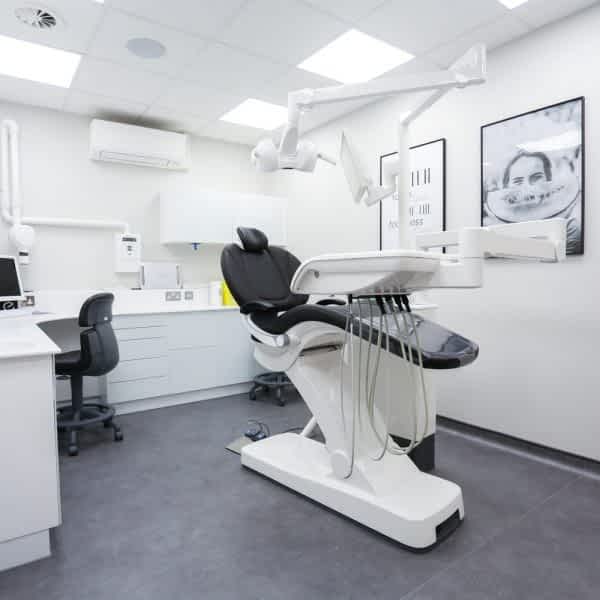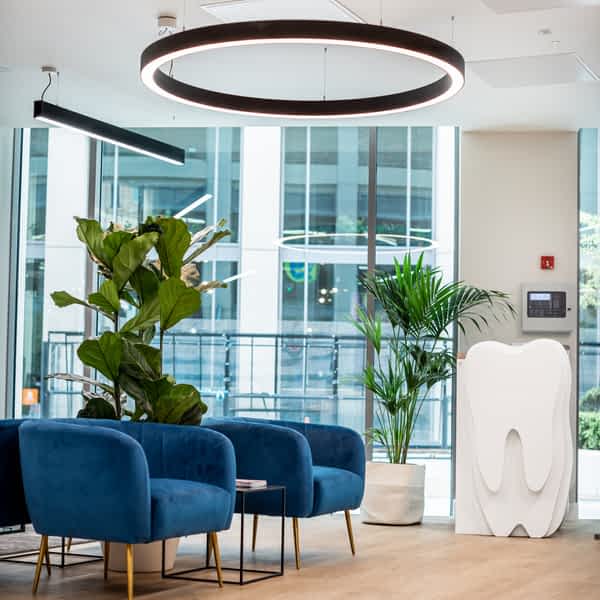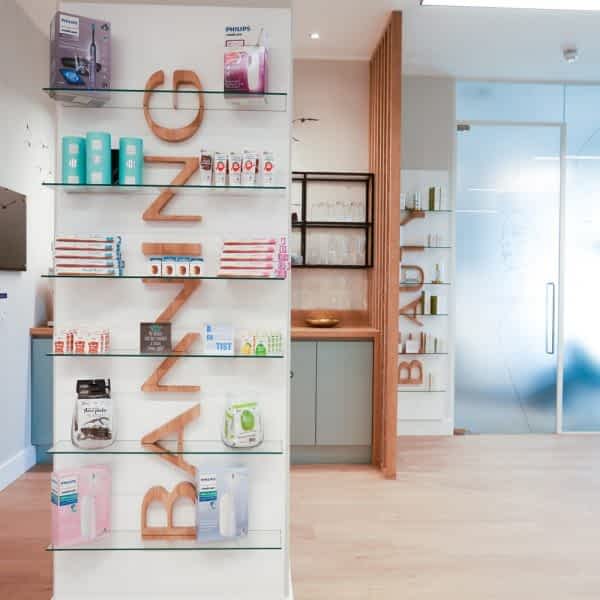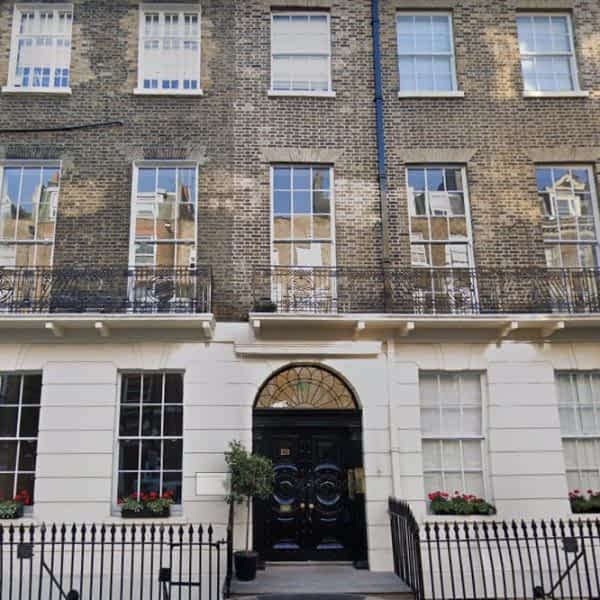
The rise of “Turkey Teeth” and what you need to know about Dental Tourism Versus Dental Implants London
What are “Turkey Teeth?”
Dental implants London or dental tourism? This questions crosses many people’s minds. However, before making a decision, consider the facts surrounding “Turkey Teeth.” Turkey Teeth is the colloquial term for when people travel abroad, usually to Turkey, for specialised dentistry treatments and procedures. This is becoming increasingly popular and is known as Dental Tourism. In the UK, private dental treatments often come with hefty price tags, this is why people are now considering travelling abroad for their dental needs as it can be much more cost-effective. With this in mind, it is understandable why ‘Turkey Teeth’ is becoming such a trend, and it is something worth considering if you are on the lookout for dental treatments.
Dental Tourism, also referred to as ‘Turkey Teeth’, has been on the rise in recent years with people looking for cheaper dental treatment abroad. Dental Tourism is the process of travelling abroad for cheaper dental work, predominantly in Turkey, but also in other countries such as the Czech Republic, Hungary, and India. The goal of dental tourism is to save money but is also attractive as it enables people to combine a relaxing holiday with a dental visit that would otherwise be expensive in their home country. Treatment services include dental implants, crowns and veneers, teeth whitening, root canals, and more. Due to the competitive pricing and a lack of waiting lists in other countries, patients can make significant savings when choosing to go abroad for dental care.
Dangers of Dental Tourism vs Dental Implants London
Inferior quality of materials used
When it comes to dental tourism, one of the primary concerns is the quality of materials used. Oftentimes, cheaper materials are used to save costs. This can result in higher levels of risk compared to using superior materials which are more expensive. Poor materials can lead to the failure of the structure of the dental bridge or fillings, and the entire restoration or crown may need replacing in a short amount of time. It’s important to know that patients abroad may be offered materials that are not approved in the country of origin or may not meet recognised standards of quality. In the long-term, this can lead to serious dental problems and ultimately higher costs to the patient.
No legal recourse if something goes wrong
One of the key dangers of dental tourism is that, if something does go wrong, you may have very little to no legal recourse. This can be a particularly worrying prospect if you’re travelling abroad for medical treatment, including dental care. It’s important to ensure that you do your research and only book treatment with organisations who are regulated to the highest standards. Always check and make sure that you have access to a reputable healthcare ombudsman in the country you’re travelling to, should you need it. If you’re ever unsure, it’s best to seek advice from a licensed and qualified healthcare provider.
Lack of after-care and follow-up
Dental tourism poses a particular risk related to after-care and follow up. Patients may often find themselves thousands of miles away from the clinic they received treatment at, making it difficult to tackle post-operative issues in the case of emergency. Additionally, the lack of legal duties on the part of the clinic or practitioner to monitor and check-up on patient further reinforces this risk. Many clinics abroad are arguably unable to provide the same level of after-care and follow up as a professional practitioner in the UK. When considering dental tourism and looking at the possible savings to be made, it is important to take into account the increased risk of not receiving adequate follow up and after-care if there are problems with your treatment.
Types of Dental Implants
Traditional Implants
Traditional implants are one of the most common types of dental implants, which have been used successfully for many years. The implants are made up of a small metal cylinder, usually made of titanium, which is surgically placed into your jawbone. This is then covered with a gum-coloured cap, which allows for a completely natural look. Traditional implants have proven to be a reliable and durable form of restorative dental work, with excellent long-term success rates and improved patient quality of life.
Trabecular Implants
Trabecular dental implants are a form of implantation that utilises the natural properties of bone to promote increased stability of the implant. A trabecular bone implant is placed directly into the dental area, allowing for shorter, and less invasive implant procedures. The implant is ‘screwed’ into the bone and has a latticework of porous channels that allows for a nourishing environment that encourages blood supply and bone growth that aids in the stability and longevity of the implant. Trabecular dental implants have also been known to reduce the number of steps involved in a tooth implant procedure, meaning less time and discomfort for the patient.
All on 4 Implants
An All On 4 implant is a type of dental implant procedure that is a cost-effective way to replace missing or damaged teeth. It involves using only some implants in the jawbone and fitting the entire arch of replacement teeth on top of them. This procedure can often be completed in just one short appointment and is a popular choice for patients who want to replace all their teeth in one go. The All On 4 implants are much less invasive than having a full arch of separate implants and also have the potential to improve a patient’s bite and facial structure.
Placement of Dental Implants
Depending on the number of teeth missing, dental implants may be placed:
Individually
Dental implants can be an incredible asset to anyone seeking the most advanced and time-honoured way to replace missing teeth. When placed individually, they can fill the gap left by a single missing tooth without requiring any adjustment or alteration to the neighbouring teeth. Dentists use implant technology to great effect, allowing for increased stability and a feeling of ‘like for like’ dentition – the implant looks, feels and functions just like a natural tooth, and restores the aesthetic of the mouth. All-on-four and all-on-six implant placements are both options, while single tooth implants offer maximum choice and control for the patient.
Bridges / Fixed Dentures
Dental implants are becoming an increasingly popular treatment for people seeking to restore their smile or improve their oral health. They can provide a more permanent solution than conventional dentures or bridges, as they are directly placed into the jawbone. One of the main benefits is that they can be used as anchors for dental prosthetics, such as bridges and fixed dentures, which are secured in place for a long-term, comfortable solution. Not only do they provide a more stable and secure fit than traditional dentures, they can also improve the function and appearance of the teeth, restoring that natural smile.
Screw-Retained Dentures
Dental implants are a common restorative prosthetic used for replacing teeth. Screw retained dentures are a popular type of prosthetic that allows secure placement of implants, making them a favourite for both dentists and patients alike. Screw retained dentures utilise implants placed in the jawbone and connect them to the denture or bridge to provide stability and a secure fit. Compared to traditional dentures, they are stronger, more realistic looking, and provide greater stability. With the help of dental implants and screw retained dentures, patients can maintain a more natural feeling and functional denture and restore a natural, healthy smile.
Considerations for Dental Implants in the UK
Time and money factors
When it comes to making a decision between travelling abroad for medical treatment or getting the same medical care in the UK, time and money are two important considerations. Banning Dental Group have shorter waiting lists on average than many other clinics, meaning that patients can start their treatment sooner. Additionally, travelling abroad for treatment can incur significant costs, not only for the medical treatment itself, but for the associated travel, accommodation and other miscellaneous expenses. This can lead to much higher overall costs than if you had opted to receive the same treatment in the UK. Thus, when considering time and money factors, opting for treatment in the UK could prove to be a better option.
Time needed to heal
In the UK, recovery from medical conditions or treatments can be achieved in considerably less time than in many other countries. This is due to the highly efficient healthcare system in the UK and the dedicated specialists who focus on providing the best possible care. Banning Dental Group offers a wide range of treatments that can take less time than those that may be available abroad, with a medical and multi-disciplinary team of professionals who work together to create a treatment plan to ensure the best possible outcome in the shortest time possible. The continuity of care in the UK also enhances recovery times, as patients are able to have their condition and treatment monitored regularly and receive the necessary help to make a full recovery.
Risk factors (infection, allergic reactions, rejection)
When it comes to receiving medical treatment abroad, there are numerous health risks to take into consideration. Aside from the risk of infection, there is also the risk of allergic reactions to medications, as well as the risk of organ rejection post-surgery. With Banning Dental Group having some of the best implantologists in the country, you can be sure you are in safe hands.
Post-Implant Care
Routine professional check-ups
Once you have had a dental implant placed, it is essential to undergo your routine professional check-ups. This allows the implant to be monitored and growth of gum tissue to be observed. Follow-up appointments can also ensure that any changes that may occur post-treatment are tracked. To ensure a successful long-term outcome, regular follow-up appointments are required to guarantee the health and function of an implant. If you are having difficulties with your dental implant, contact your practitioner immediately for a further check-up. At this stage, early intervention will help ensure any small problems that arise are dealt with quickly, significantly reducing the chance of any future issues, which is much more difficult if your dentist is in another country!
Final Thoughts on Dental Tourism
Dental tourism in Turkey has surged in recent years, attracting tourists from all over the world to take advantage of the low cost procedures. However, the real risks of this form of dental treatment are impossible to ignore. Unregulated and substandard clinics put tourists’ safety and oral health in jeopardy. Unqualified practice puts patients at risk of painful and expensive corrective procedures. At Banning Dental Group, our priority is always our patients’ safety and satisfaction. We believe that dental tourism is an unnecessary risk to your wellbeing and recommend that if you’re in need of dental treatments, you always consult with a qualified professional. The only safe and reliable way to receive optimal dental care is to trust an experienced, qualified, and trustworthy dental professional. Be sure that the dental clinic you select is up to the highest standards before getting any treatment. Schedule a complimentary consultation today.
Frequently Asked Questions About Dental Implants London
What is a Dental Implant and How Does it Work in London?
A dental implant is a small titanium post that is surgically inserted into the jawbone beneath the gum line. In London, implant dentists use this post as a replacement for the root of a missing tooth. Once in place, the dental implant allows the dentist to mount replacement teeth or a bridge into that area. The implant fuses with the jawbone, providing stable support for artificial teeth and ensuring that dentures or bridges mounted to implants won’t slip or shift in your mouth.
How Many Visits to a London Clinic Are Required for Dental Implant Surgery?
Typically, dental implant surgery in a London implant clinic involves multiple stages, each requiring separate visits. After the initial implant consultation and planning, the implant surgery is performed where the titanium post is placed in the jawbone. Following this, there is a healing period before the artificial tooth or crown is added. The total number of visits can vary depending on the specific treatment plan and the need for procedures like bone grafting.
What Are the Benefits of Choosing a Dental Implant Specialist in London?
Choosing a dental implant centre specialist in London ensures that you receive care from someone with extensive training and experience in implant dentistry. A specialist is more likely to be up-to-date with the latest techniques and technologies in implant surgery and treatment, thus increasing the success rate of the procedure. Additionally, London-based specialists often have access to state-of-the-art implant clinics and technology.
How Does Full Mouth Dental Implant Treatment Differ from Single Tooth Replacement in London?
Full mouth dental implant treatment in London involves replacing all the teeth in either the upper or lower jaw, or both, with implants. This is more complex and extensive than single tooth replacement, which involves replacing just one missing tooth with an implant. Full mouth treatments often require more implants and a detailed treatment plan to ensure the implants are evenly distributed for maximum support and aesthetics.
What Should I Expect During an Implant Consultation at a London Clinic?
During an implant consultation at a London clinic, the dentist will assess your oral health, discuss your medical history, and determine your suitability for dental implants. This may involve taking X-rays or 3D images of your mouth. The dentist will explain the implant process, discuss different implant options, and create a personalised treatment plan.
How Long Do Dental Implants Last and What Factors Affect Their Longevity in London?
Dental implants in London can last many years, often decades, with proper care and maintenance. Factors affecting their longevity include the patient’s oral hygiene, lifestyle habits, the quality of the implant surgery, and the skill of the implant dentist. Regular check-ups at an implant clinic in London are crucial to monitor and maintain the health of the implants.
Are Dental Implants in London Suitable for Everyone?
Not everyone is a candidate for dental implants in London. Suitable candidates typically need to have healthy gums, adequate bone to secure the implants, and be in good overall health. An implant specialist in London can assess your suitability for implants and may recommend alternative treatments if necessary.
What is the Success Rate of Dental Implant Treatment in London?
The success rate of dental implant treatment in London is generally high, especially when performed by experienced implant dentists. Success rates of dental implants London can vary based on the location in the jaw where the implants are placed, but overall, with proper care and maintenance, dental implants have a high success rate in London.
How Much Does Dental Implant Treatment Cost in London?
The cost of dental implant treatment in London varies depending on several factors such as the number of implants needed, the type of implants used, and the complexity of the case. It’s best to have an implant consultation at a London clinic for a precise quote. We can often help with flexible finance plans and interest free credit.
Can Dental Implants Be Done on the Same Day in London?
Yes, in some cases, dental implants can be done on the same day in London. This procedure, known as “immediate loading,” involves placing the implant and the crown during the same visit. However, this is not suitable for all patients and depends on individual circumstances, such as bone quality and overall oral health. An implant specialist in London can advise if this is an option for you.









